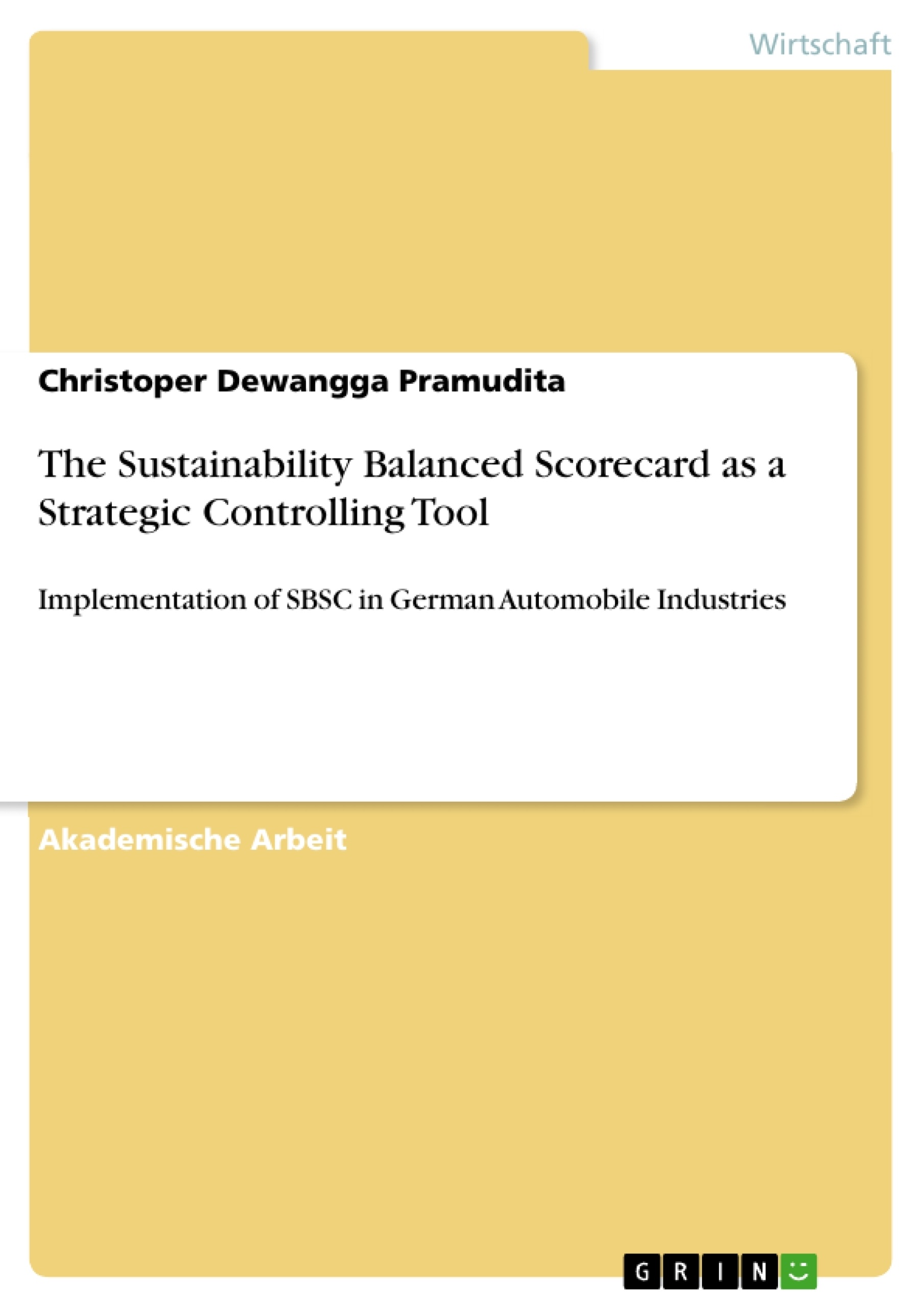The following questions are discussed in the paper: Why is it so necessary applied for sustainability of the business nowadays? How can the implementation of SBSC help the company’s financial performance? What are the benefits of implementing SBSC? This work might be helpful to assist especially managers to implement the concept of Sustainability Balanced Scorecard (SBSC) as strategic controlling for their long-term success in their sustainability strategy.
During the last decade, environmental and social issues, are reflected in market transactions and have become an important issue so that many companies implemented specific environmental and social management systems. However, these systems have rarely been integrated with the general management system of a firm so that it is often not related to the economic success of the firm and the economic contribution of environmental and social management.
The topic about Corporate Social Responsibility (CSR) has become familiar nowadays, where companies, especially listed companies, have disclosed their CSR-activities, which involve economic, environmental and social issue, in their annual report or in their sustainability reports to show to the public that they are also concerned about these issues. Furthermore, sustainability has increasingly become an important issue for wellbeing of human life and it is responsibility of many parties such as individuals, corporations, or governments. Nowadays, the term sustainability also has become popular among companies to implicate social, economic and environmental pillars to their strategy and management of the company. Today, companies should not only focus on their profits, but they are also forced to concern about other issues such as social, economic and environmental. Unfortunately, many companies still do not know how to implement or measure its outcomes.
Inhaltsverzeichnis
- Introduction
- Background
- Research Question
- Objektive
- Literature Review
- The Concept of Balanced Scorecard (BSC) as a Strategic Controlling Instrument
- The Definition of SBSC
- The Process of Formulating SBSC
- A Strategy Map for SBSC represents How the Organization Creates Value
- Two Examples of the Implementation of SBSC shown in Annual- and Sustainability- Report of two German Automobile Industries (Daimler AG & BMW AG)
Zielsetzung und Themenschwerpunkte
Diese Arbeit untersucht die Einführung der indikatorbasierten Nachhaltigkeits-Balanced Scorecard (SBSC) als strategisches Controlling-Instrument in der Nachhaltigkeitsstrategie mit ihren fünf verschiedenen Perspektiven. Die Arbeit analysiert anhand von Fallstudien aus zwei deutschen Automobilunternehmen, BMW AG und Daimler AG, wie SBSC in der Praxis umgesetzt wird.
- Die Anwendung der SBSC als Instrument zur strategischen Steuerung und Kontrolle von Nachhaltigkeitsstrategien
- Die Integration von fünf verschiedenen Perspektiven in der SBSC, um die Nachhaltigkeit in verschiedenen Aspekten zu betrachten
- Die praktische Anwendung der SBSC anhand von Fallstudien aus der Automobilindustrie
- Die Herausforderungen und Chancen bei der Implementierung der SBSC in Unternehmen
- Die Bedeutung der SBSC für die nachhaltige Entwicklung von Unternehmen
Zusammenfassung der Kapitel
Das erste Kapitel führt in die Thematik der Nachhaltigkeits-Balanced Scorecard (SBSC) ein. Es beschreibt den Hintergrund, die Forschungsfrage und die Ziele der Arbeit. Kapitel zwei analysiert die Literatur zu den Themen der Balanced Scorecard (BSC) und der SBSC. Es untersucht die Definition, die verschiedenen Perspektiven und den Prozess der Formulierung von SBSC. Das dritte Kapitel beleuchtet zwei Beispiele der Implementierung von SBSC in den Jahres- und Nachhaltigkeitsberichten der beiden deutschen Automobilunternehmen Daimler AG und BMW AG.
Schlüsselwörter
CSR, SBSC, Nachhaltigkeit, Balanced Scorecard, Strategie, Controlling, Automobilindustrie, Daimler AG, BMW AG, Corporate Social Responsibility, Sustainability Balanced Scorecard, Indicators.
- Quote paper
- Christoper Dewangga Pramudita (Author), 2019, The Sustainability Balanced Scorecard as a Strategic Controlling Tool, Munich, GRIN Verlag, https://www.grin.com/document/509036




